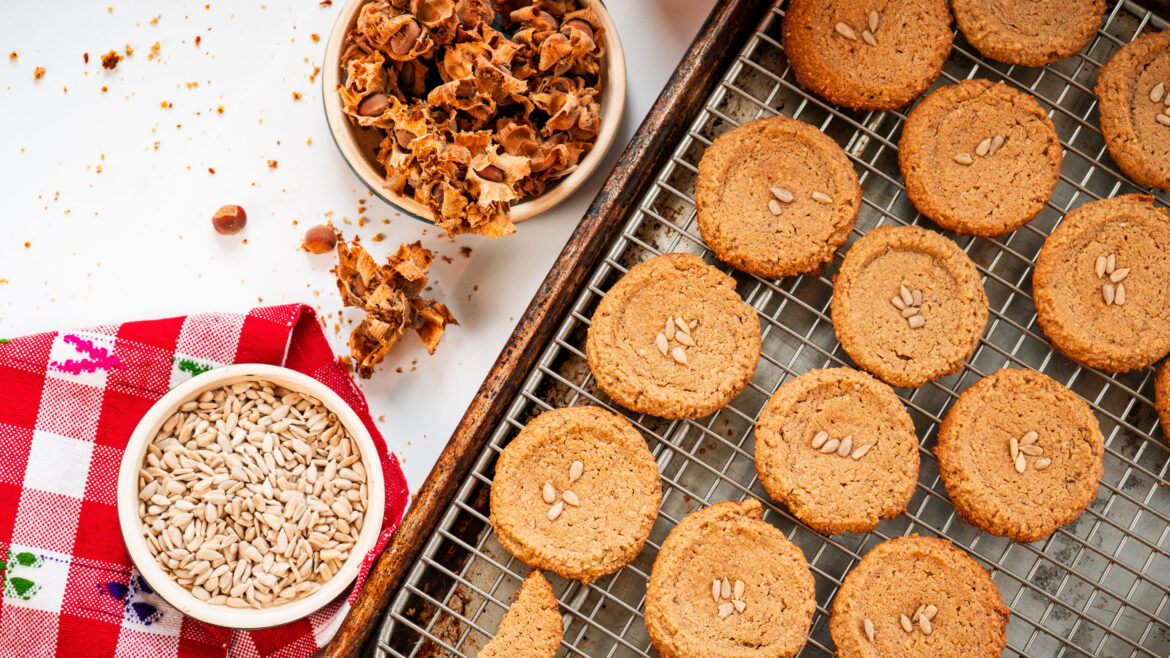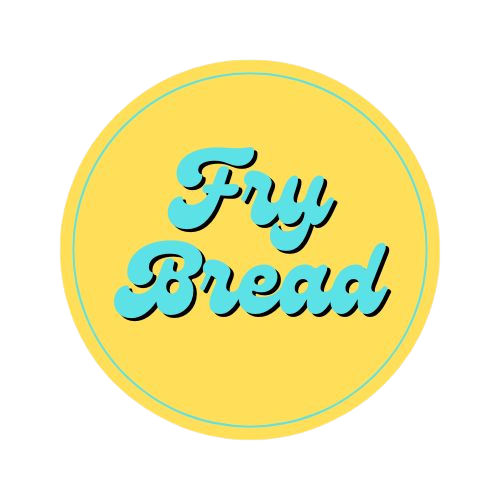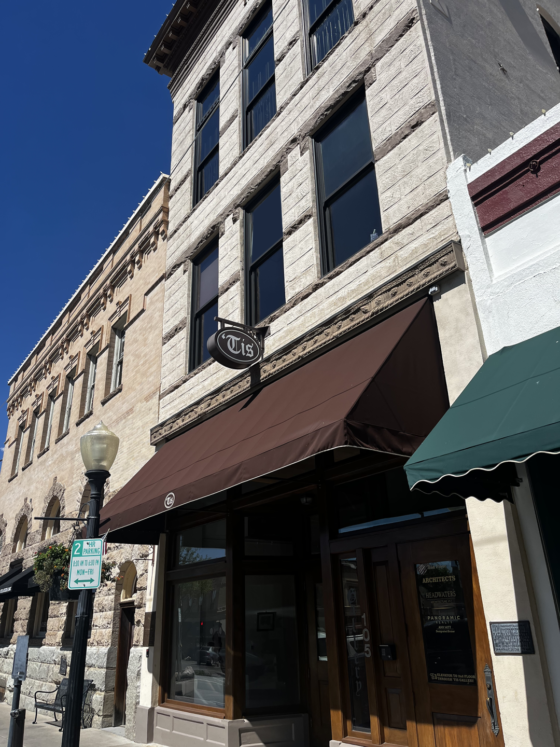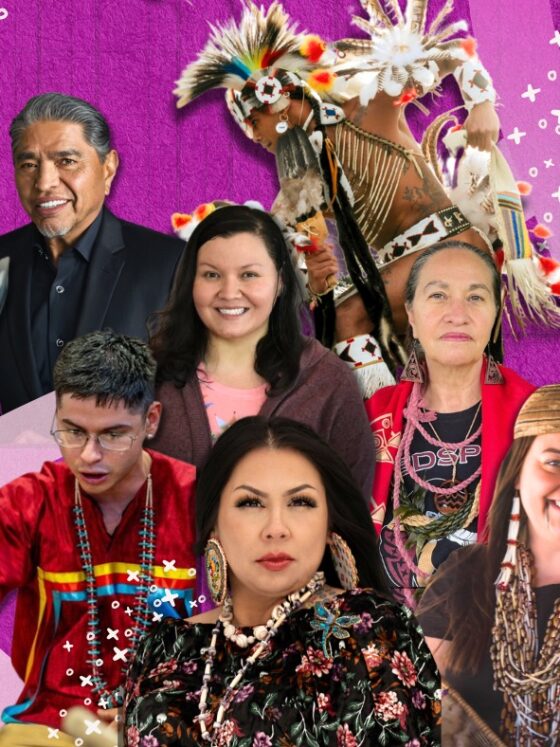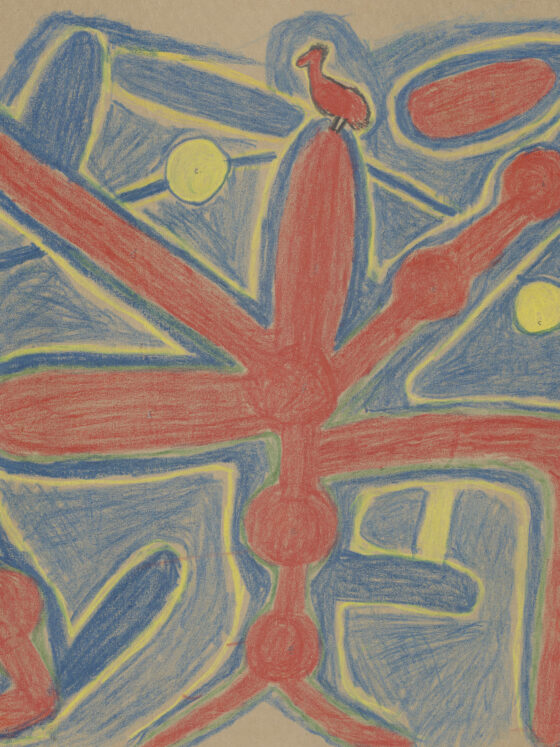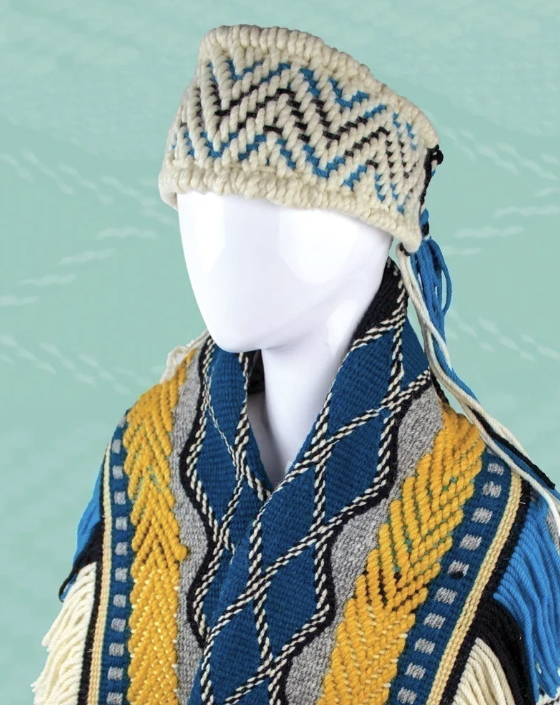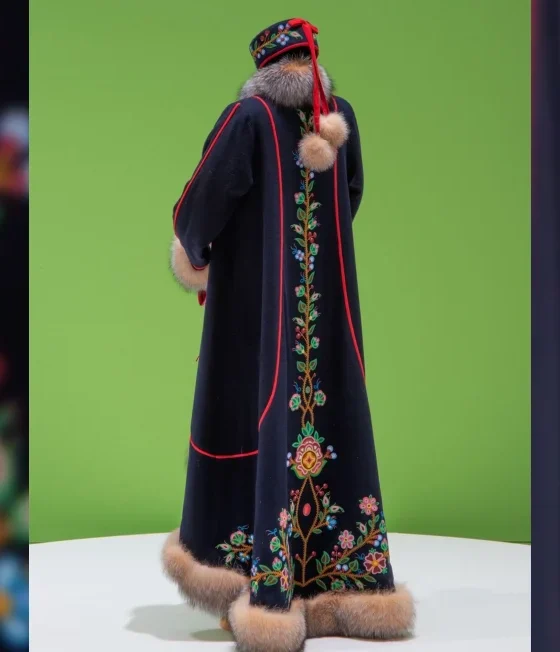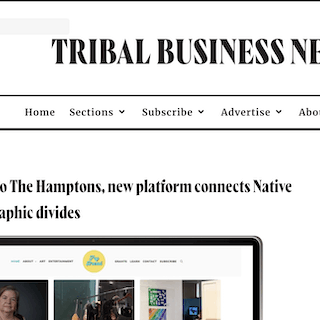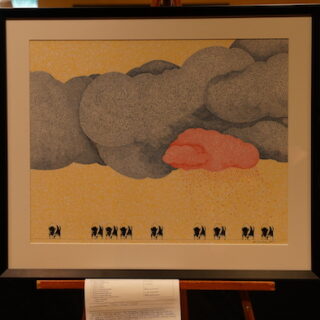Ingredients: The Fry Bread Interview with Derek Nicholas, author of Through Food We Know Ourselves
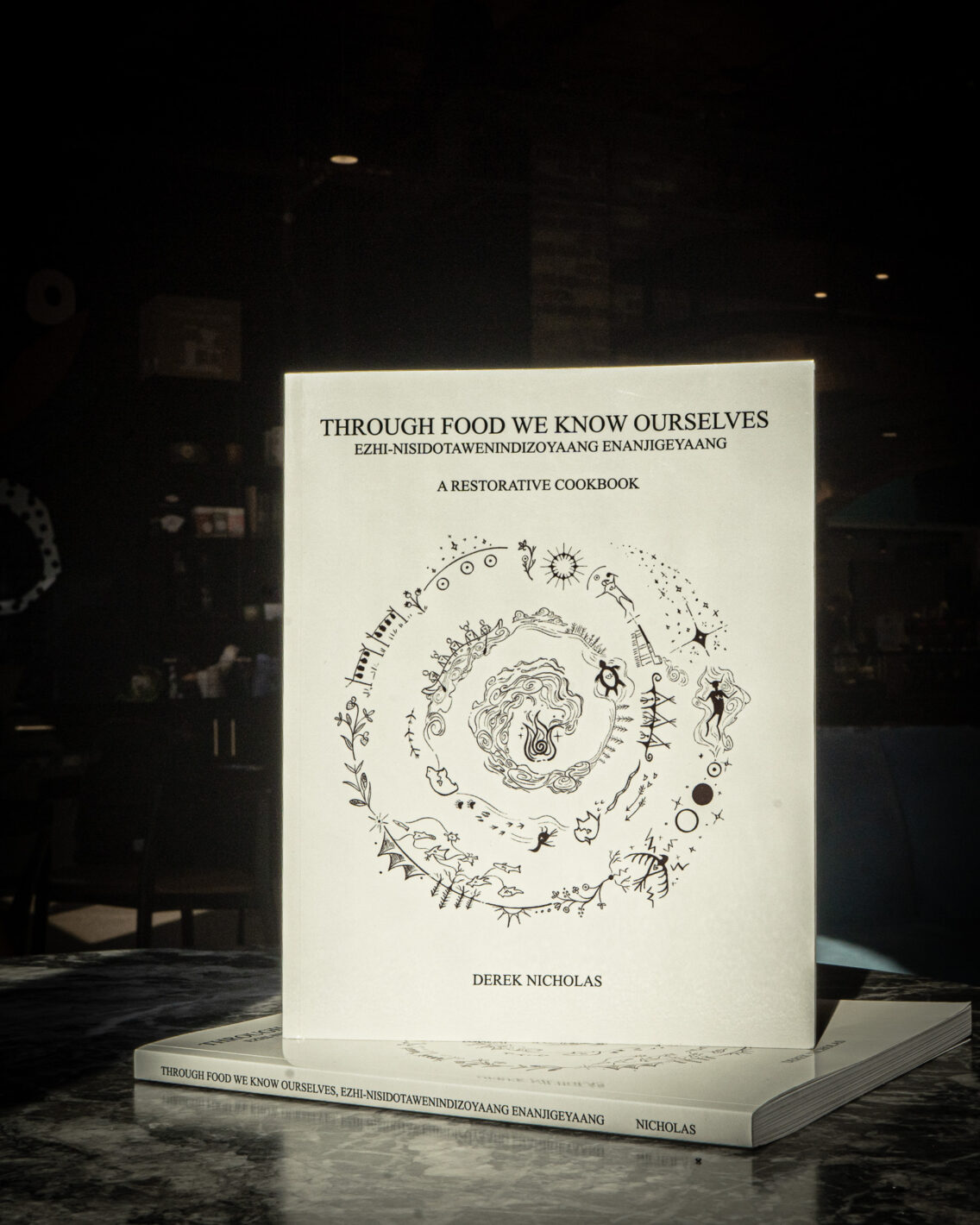
Derek Nicholas (Red Cliff Band Ojibwe) has been living and working with food security and sovereignty, language revitalization, seed saving, food cultivation, culinary arts, sustainable food and water projects, youth engagement and much more. His new restorative cookbook, Through Food We Know Ourselves, serves as introduction to the Anishinaabe world through food–traditional plants and animals, old stories, and Nicholas’s own life experience.
Fry Bread had the chance to chat with him about the book, and why we are all excited about it.
FRY BREAD: Tell us about Through Food We Know Ourselves.
NICHOLAS: Through Food We Know Ourselves is a restorative cookbook that’s geared towards the Anishinaabe way of being, so it’s a very unique book. I haven’t seen anything like this, because a lot of the foods are things you would never even imagine eating and even using, like wild plants for seasonings–shifting away from salt and black pepper and using wild plants as a substitute for that.
The idea is that we all have a place within this world. We all have a gift, and when we revitalize our Indigenous food systems, we can find that calling within our lives and live a fulfilled and meaningful life.
The book is a cultural journey. In addition to a restorative cookbook, I’m excited for people to read it and hope to change their perspective on food, and even life itself. I’m excited to have this book published and out, and wonder what the ripple effects of it will be.
FRY BREAD: When you say a restorative cookbook, what do you mean?
NICHOLAS: A lot of this knowledge and food that’s in this book is not commonly practiced any more. We hope to bring these memories and practices back into our lives. The lands and the spirits that occupied the land will always contain these memories and can always bring that stuff back to us.
But these are foods and ingredients that are just commonly overlooked. These used to make up a big part of our diet, but not so much anymore. The word restorative is just kind of more of restoring our culture. We’re restoring our health, restoring our identity through our food.
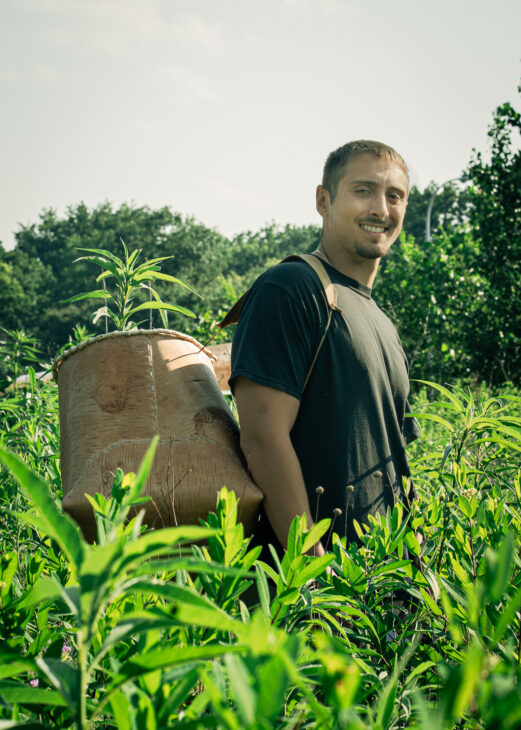
FRY BREAD: What can people expect to find when they start reading it?
NICHOLAS: They’re gonna find a lot of plant knowledge–different plants that you can harvest out in the bush, whether you’re using it for food, medicine, or utility. You’re gonna find a lot of recipes that focus around wild game.
Then there’s also a lot of writing about different ideologies and teachings around wild foods and our traditional food ways and the importance of bringing that stuff back.
I feel like a lot of the other books are mostly focused on domesticated ingredients and things that are accessible in the stores. This book, the ingredients and food that we use is a lot of hard work because you’re gonna have to go out there–out in the woods and know where these plants or animals live, how to identify them, and then forage them and process them.
I share a lot of lived experiences in this book and a lot of teachings that I’ve received from my elders.
FRYBREAD: Did you receive permission from elders to tell these stories?
That was a big part of the book process. This book is actually dedicated to Hope [Flanagan]. She peer-reviewed it. That was probably the biggest obstacle in writing this book, because, as you know, Indigenous knowledge is deeply sacred and should be protected because, as history has shown, often when taken out of context Indigenous knowledge is exploited and commodified, I was very cautious and careful in sharing, not sharing anything too sensitive, and then also having the elders peer review it to making sure that, because over the years, there’s tons of elders who have guided me, and they were clear: Certain knowledge should not be written down or publicly shared. Our true knowledge exchanges happen in community at gatherings, community events, and in relationship.
That’s why oral tradition has been the cornerstone of how we passed down teachings, and it’s really intentional. There is a reason for why we do that, so this book is ultimately just an introduction.
FRY BREAD: Is there anything you want people to know?
NICHOLAS: A lot of people think our Indigenous food systems are very boring and simple and basic, but they’re so multi-leveled. It’s kind of overwhelming how much is out there. This book probably only makes up not even a fraction of one percent of the food knowledge that’s out there. It can get overwhelming to try to understand all the plants and animals and know how to utilize them, but this is a resource for people to get introduced to what life can look like when revitalizing Indigenous food systems.
We can’t learn this all in one lifetime. It’s not all about mastering this stuff at once, but it’s about enjoying the journey and learning how to love connecting with the land and reciprocating it in that way.
Find your copy of Through Food We Know Ourselves and learn more about Derek through his business and on his website, Wiisinig LLC.
